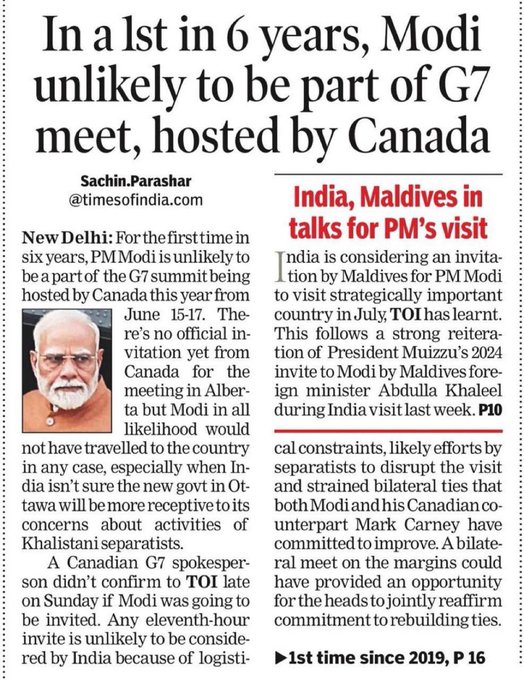India’s absence from the G7 meeting in Canada has raised eyebrows globally, with many attributing it to Prime Minister Modi and Foreign Minister S.
Jaishankar’s perceived failure in diplomacy strategies, particularly the infamous “hug-plomacy.” Despite being a major global player, India’s exclusion from this prestigious gathering signifies a setback in its international relations efforts..
India’s diplomatic approach under Modi and Jaishankar has been closely scrutinized, with critics pointing to instances where unconventional methods, such as the Prime Minister’s hugging diplomacy, may have backfired.
The country’s exclusion from the G7 meeting could be seen as a consequence of these perceived missteps, highlighting the importance of traditional diplomatic protocols in international forums..
In the broader Asian context, India’s absence from the G7 summit may have implications for its regional standing and influence.
As a key player in the Indo-Pacific region, India’s exclusion from a forum that discusses major global issues could impact its ability to shape discussions and policies that affect the region’s dynamics..
Looking ahead, India may need to reassess its diplomatic strategies and prioritize traditional diplomatic norms to secure its position on the global stage.
The exclusion from the G7 meeting serves as a reminder of the importance of nuanced and strategic diplomacy in advancing national interests and maintaining international credibility..

